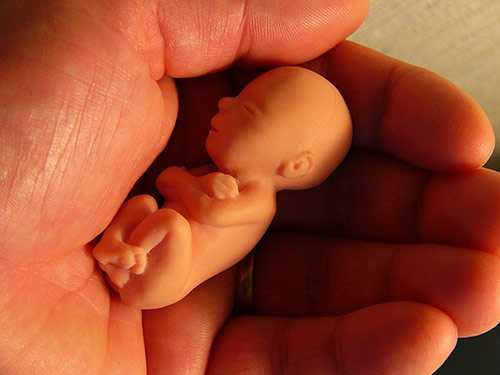
There is a lot at stake when you think you may be pregnant. Pregnancy is a life-changing event. If you have been trying to get pregnant, there is the anticipation of finding out that your dream has come true. If you haven’t been trying to become pregnant, you might be afraid of getting a positive result. It can feel like the wait would be way too long if you went to the doctor and got a pregnancy test at their office. That is why home pregnancy tests were invented.
They are fast and discrete. You only have to pick one up at the drugstore, take the test and wait a couple of minutes for the result. They might be fast and discrete, but are they reliable? That is an important question when you are waiting for the results that will alter the course of your life and, perhaps, mean that you have some important choices to make.
How Do Home Pregnancy Tests Work?
If you want to know if home pregnancy tests are reliable, you should start with how they work. When you become pregnant, your body begins producing human Chorionic Gonadotropin (hCG). This is an important hormone that allows for the growth of a baby in the womb. You should know that your body produces it at a fantastic rate from the very first moment of conception.
In fact, in the initial stages of your pregnancy, the amount of hCG you are producing doubles every thirty-six to forty-eight hours! This production reaches its greatest levels between eight and ten weeks after conception. By that point you will have missed at least one period and begun to wonder why. That is usually when a woman buys a pregnancy test.
Pregnancy tests are designed to detect the presence of hCG in your urine. You pee on a stick and the stick has a special strip on it. The strip is designed to detect the presence of hCG and change color or reveal a symbol (often + or -) accordingly.
How Much Faith Can I Place in Home Pregnancy Tests?
You can place a fair amount of faith in the results you get from a home pregnancy test. Most are extremely reliable. However, there are a few issues you should know about. To begin with, there is a difference between a positive and a negative result.
A positive result, one that indicates you are pregnant, is most likely correct because it has accurately detected the presence of hCG in your urine.
A negative result, one that indicates you are not pregnant, is a little less likely to be correct because it may miss the hCG, particularly if you are still early in your pregnancy.
Early on in your pregnancy (before you have even missed a period), the test may not be sensitive enough to detect the levels of hCG in your urine.
There are other factors that can also affect the results of your pregnancy test. For example, if you drink a lot of fluid before taking a pregnancy test, it can dilute the amount of hCG in your urine. You should also be sure to read and follow the instructions provided with the test in order to get accurate results.
There are a variety of medications that can affect the results of your pregnancy test. These include common ones such as sleeping pills, tranquilizers and promethazine (which is used to treat allergies).
They also include less common medications, like those used to treat Parkinson’s disease, diuretics that increase the production of urine (commonly used to treat heart conditions and high blood pressure) and anticonvulsants that treat seizures. If you have been taking drugs to increase your fertility, those can affect the results as well.
Modern pregnancy tests are designed to be sensitive and highly accurate. Most of the tests are billed as being 97 to 99 percent accurate, but a test can be less effective if it’s not used properly, used beyond its expiration date, or exposed to sunlight. Take care to read and follow the instructions in order to get the most accurate results.



